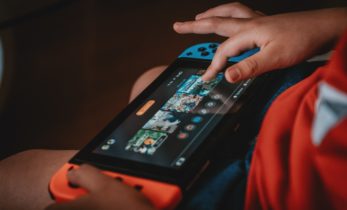Greater than 3 minutes, my friend!
All Games Should Be Localised Like Ni no Kuni Tackling Japanese to English Comedy in a Video Game
Translation & Localisation in Games
One thing they never explained in my Theory and Practice of Translation MA, was that translation and localisation are two different things. In fact, the subject of localisation was never touched upon at all. Which in hindsight, was a missed opportunity for myself, the other students, and lecturers. How can you teach translation if you don’t cover localisation?
It wasn’t until I played the game ‘Ni no Kuni: Wrath of the White Witch’ that I realized the importance of localisation, especially in video game translation.
Now, some companies leave the translation and localisation entirely to the translator. Other’s will have translators to work on the translation and writers (who often know no Japanese at all) to work on making it sound natural in English, the localisation. When you compare the translations of these two methods there are some obvious differences.
Games where only translators have worked on them tend to produce English versions which are closer to the Japanese in terms of wording, sentence structure, etc. But these games, I have found, had been difficult to understand (especially when they have long plots), as Japanese fiction leaves a lot of implied information whereas English speakers often prefer this information to be clear.
But games that have had English writers as well as translators tend not be as ‘close’ to the Japanese word for word, but it conveys the meaning better and, I think, is more enjoyable for the gamer.
Often the translator is too close to the original text to think about stepping away from it. Yet translators need to be trained to step away from the source, and produce entertaining localised translations.
Ni no Kuni’s Localisation Choices
Ni no Kuni is a Japanese role-play game developed by Level 5, a studio based in Fukuoka, Japan. When the game came to English speaking countries it was translated and localized by Shloc, a UK based localisation service. But the two worked very close together to get the perfect translation.
The international release had the options for the text and/or audio to play in Japanese or English. I played it with English text but Japanese audio. This is when I noticed the choices made in the translation and localisation.
The language used in the original is one you would expect from a Japanese video game. Everyone speaks standardised Japanese, except for one race (the faeries) who has an Osaka accent.
 The biggest different in the way people talked was the choice to change Osakan to Welsh. As someone from the UK this made for some wonderful dialogue, especially the scene where two faeries are doing comedy on stage. In Japan this is a very recognisable type of comedy called manzai. Localising it into
The biggest different in the way people talked was the choice to change Osakan to Welsh. As someone from the UK this made for some wonderful dialogue, especially the scene where two faeries are doing comedy on stage. In Japan this is a very recognisable type of comedy called manzai. Localising it into EnglishWelsh, was probably no easy task.
Localizing Comedy
Actually, a lot of this game had language based comedy. It was interesting to see how this translated over as comedy is heavily based in cultural context. In the end though I felt the localised English version had more comedy than the Japanese, mostly because of all the puns in the English language version that I don’t think an American localisation company would have been able to pull off as well.
A few examples of this was the choice of calling the cat king “your Meowjesty”, and a cow queen “Moojesty”. Others were mostly reflected in the location names such as “Goroneeru” which changed to “Ding Dong Dell”. And many instances where I was laughing out loud because of the terrible yet wonderful puns in dialogues that weren’t in the Japanese yet fit the tone of the game so well.
Summary
It’s clear that every choice made in the translation of this game was carefully made. Carefully discussed among a group of translators and the original Japanese developers. It certainly paid off creating a charming and amusing game. Which, if you speak Japanese and English, comes off as extra charming as you enjoy the best of both worlds.
Translating and localising a product of this quality is no easy task, certainly not for a single translator. I think all games should be localised like this and I look forward to seeing what they do with Ni no Kuni II.
This article was originally posted on LinkedIn and then J-EN Translations in 2016.






Dear Jennifer, your standpoints are really interesting for me ! Localizing a game, and comedy needs discussion and consultation with the developers and translators. Careful discussion and mutual understanding of the involved game and comedy developers, as well as translators of different cultures yields good results.
Thank you Qasem! And thank you for reading.
Comedy really is one of the toughest things to translate between languages and culture!
You are welcome! Yes it is but it pays off when people laugh and develop their mindset to be more culturalism.
Wow, Jennifer, this was so interesting that now I feel like going and buying myself the game… but since I don’t speak Japanese I’ll have to rely on your insights 🙂 I’m not specialized in video games localisation but it sure looks like this approach is far from common. Am I right? Do you think this is because of the lack of resources/commitment, or because different approaches work for different games? Thanks!
Luckily the game is dubbed and subbed in English too, so you can easily customize the languages to what you’d enjoy most.
It’s surprisingly far from common! I think a lot of game translation companies want to make seamless translation but it involves a LOT of time and effort, which means a lot of money that some Japanese companies don’t want to invest in.
There are of course large companies like Nintendo and Square Enix who make and translate their own games (as well as others). They have the money and resources to make some really wonderful translations.
But smaller companies don’t have those resources and are often at the will of the Japanese company who don’t realize when something’s been badly translated.
I touched on this a little here: link to j-entranslations.com
Turns out with that game the Japanese publishers had it translated by a third party and asked the native localization company just to check that it made sense, but not to change the sentence structure. Which resulted in very wooden phrases.
Then again Persona 5 was a game that should have had the resources and team but still managed to mess up horribly. link to j-entranslations.com
Long story short, a number of factors can impact how good a game localization is. But at the end of the day the more money and effort one puts in, the better the result. (Like any translation!)
Erm… I’ll finish there. I could go on for a while if I’m not careful…
Thanks for readying and leaving a comment!